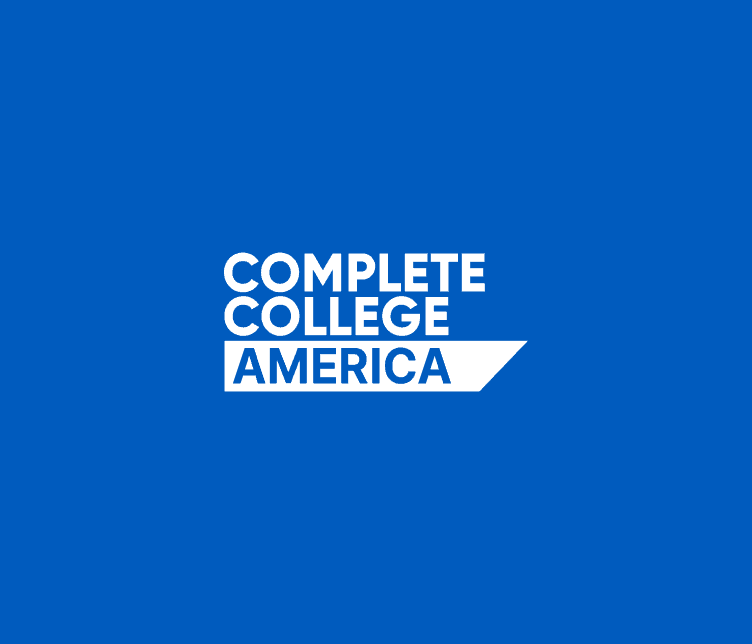This post is part two of a two part series on how Pasadena City College has utilized affinity spaces on their campus as part of a larger strategy to support student success through a culture of belonging.
In honor of Veterans Day on November 11th, the Amplification Lab is diving deeper into one of Pasadena City College’s (PCC’s) most successful “third spaces”: the Veterans Resource Center.

The Veterans Resource Center (VRC) has been helmed for the past year and a half by Veteran Center specialist Lisa Foster. A veteran herself, as many of the VRC staff are, Lisa started out in the VRC as a student worker, which she called a “pivotal” part of her college experience. Despite taking a job in that field upon graduation after earning a bachelor’s degree in Nutritional Science at California State University Los Angeles, Lisa found it to be an easy decision to come back to serve the PCC community. “When an opportunity arose to return to this meaningful work, I seized it. I deeply understand the impact this role has on veterans’ college experiences, and I am committed to making their transition at PCC as seamless as possible…the sense of community at PCC is truly unparalleled[.]”
The VRC serves about 600 students per semester, which includes both veterans and their dependents and other military-connected students such as spouses and reservists. Upon entering the center, students are surrounded by proud reminders of their service and their current goals. A bank of computers, full snack bowl, and comfortable seating areas reflect the VRC’s relaxed atmosphere. The office is also highly efficient, with several staff members on hand to direct students to a variety of services specifically for veterans. Most notably, the center houses a School Certifying Official (SCO) directly in the center, which streamlines access for the roughly 300 PCC students per semester who are utilizing VA benefits. PCC is also one of fewer than 100 campuses in the nation to have an on-campus VA Vocational Rehabilitation Counselor, called a VSOC (Vet Success on Campus) counselor. This role specifically supports veterans with service-related disabilities in getting on and off campus support. Campus and community partnerships through the VRC tie student veterans to legal assistance, mental health counseling, academic support, and a range of other services delivered with veterans in mind. Due to a holistic approach and comprehensive in-house services provided in the VRC, PCC has been recognized by Military Times for the past 11 consecutive years as the #1 in California Best for Vets-Two Year Schools.
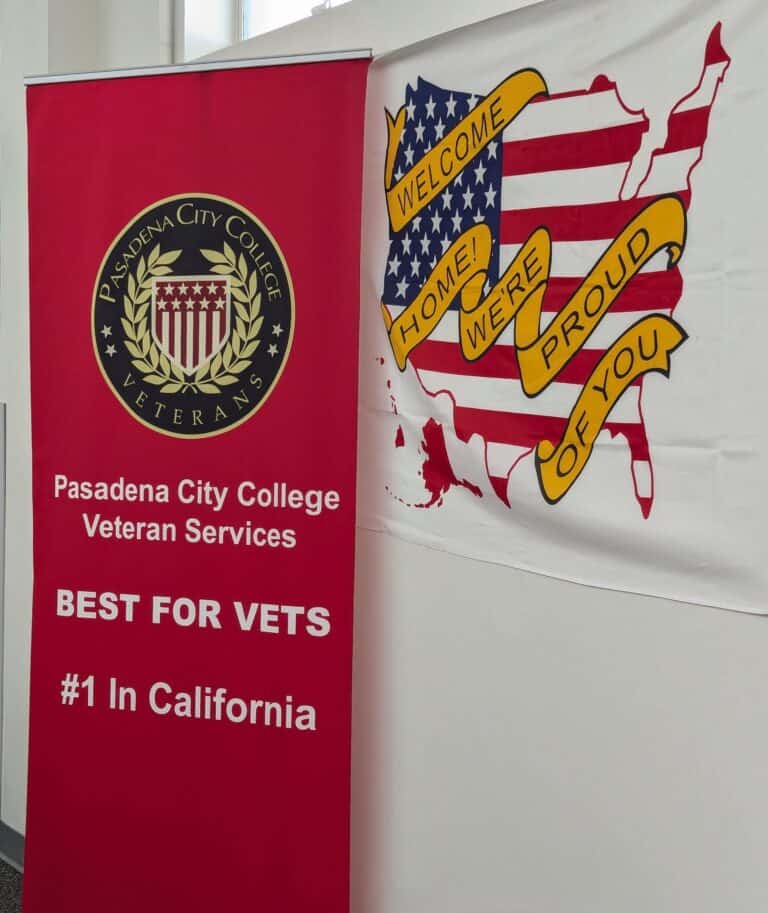
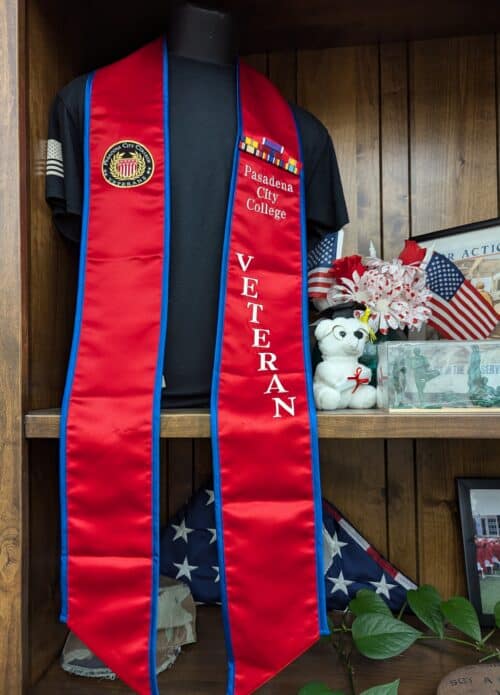
Community partnerships form another arm of support available to veterans through the VRC. Local programming through the Department of Rehabilitation and the Veteran Peer Access Network (VPAN) provides an extra layer of resources for disabled veterans and those not entitled to VA benefits. The Community Veterans Justice Program offers free legal assistance to justice-involved veterans throughout California, and the U.S. Vets Outside the Wire program offers free and confidential mental health counseling. These and similar partnerships allow the VRC to take a holistic approach to veterans services, ensuring that “military-connected students receive comprehensive support, from academic and legal assistance to mental health and vocational rehabilitation.”

A crucial aspect of PCC’s veterans services is the Boots to Books Learning Collaborative. PCC is home of the longest standing Boots to Books collaborative in the nation, and participation in the program has “profoundly impacted” the student experience. Each fall, a course is available specifically related to the academic and personal skills necessary to transition from military service to academic life. A Vietnam veteran also teaches one of PCC’s psychology courses, and other faculty have stepped up to learn about the unique challenges and experiences that veterans bring to college. Lisa states, “The sense of camaraderie and mutual understanding in these classes creates a safe and supportive space for veterans to explore their new identities as students.”
When asked what factors help create an identity-centered third space that students actually use, Lisa cited the “home away from home” atmosphere that comes from intentional efforts to create a sense of belonging for student groups. Experiential learning can also be part of the affinity experience to heighten connection. “We organize activities such as hiking trips, whitewater rafting, Dodger games, camping excursions, and other on-campus events that promote camaraderie and connection,” Lisa shared. The VRC regularly organizes on and off-campus trips and events to gather veterans and military-connected students, creating a support system driven by students who have lived experience in transitioning from military life. “In the military, we may have been responsible for million-dollar equipment or led entire units, but upon transitioning, we find ourselves in classrooms alongside 18-year-olds with limited life experience, making it difficult to relate to our peers. This also involves a profound shift in identity. However, when students step into the VRC, they are immediately surrounded by like-minded individuals who speak the same language and understand their experiences.”
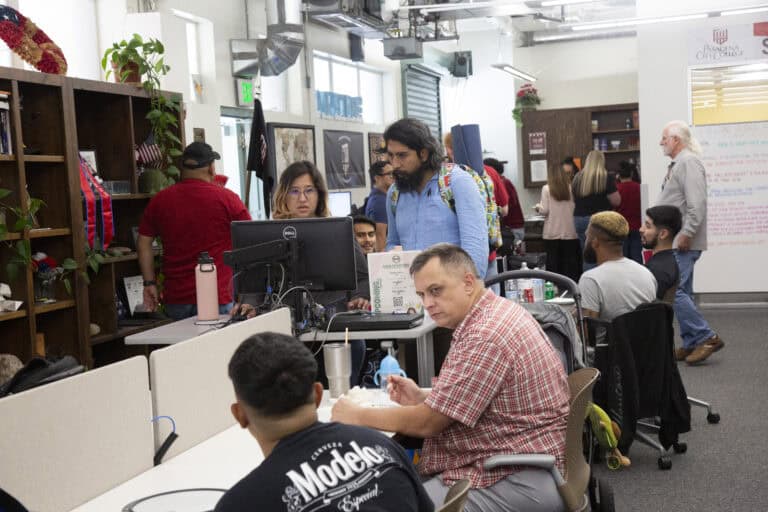
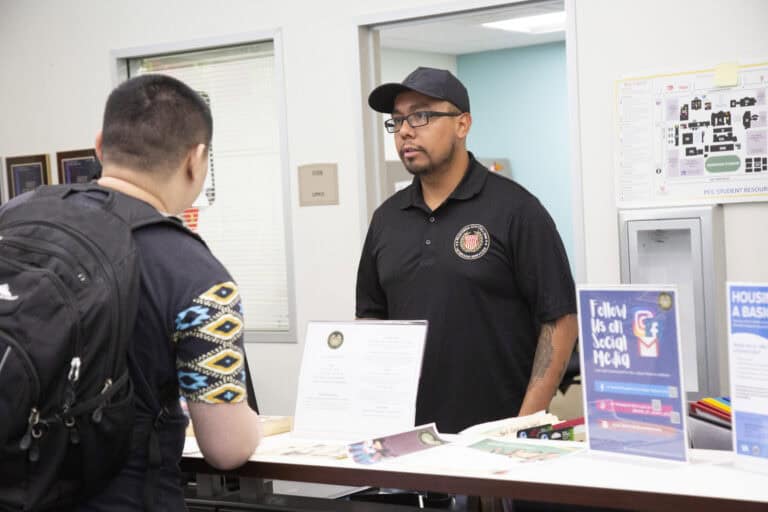
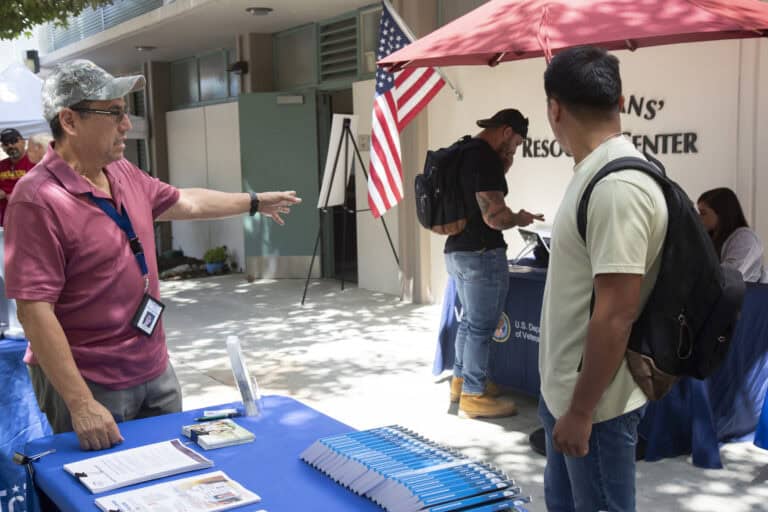
While programming and resource connections are integral to the mission of the VRC, the sense of community that those efforts creates is primarily student driven. PCC boasts an active Veterans Club, which organizes events and provides necessary student insight into the needs and priorities of military-connected students. Lisa highlights the importance of their efforts in serving veterans and other military-connected students, stating, “As the voice for veterans, the Veterans Club fosters a supportive environment where students can connect, collaborate, and uplift one another. Their efforts are essential in promoting camaraderie and ensuring that veterans feel seen, heard, and valued.” Another way that students lead the way in the VRC’s efforts toward creating spaces for belonging are the monthly ‘Band of Sisters’ check-ins for female veterans. These private, catered lunches serve as an opportunity for women to gather and connect through their shared experiences, as well as have meaningful, supportive conversations around how their diverse perspectives impact their journey as student veterans.

By combining essential services and activities focused on belonging with a functional third space, PCC has created a thriving student success community. The Veterans Resource Center is a great example of an institution using resources, community connections, and physical space to create the conditions for students to develop a sense of home on campus.
CCA thanks Pasadena City College for hosting our visit for the Complete College Photo Library project and for sharing their experiences for this article.
Read Part One of this series, an overview PCC’s work toward creating identity centered third spaces from both administrative and student perspectives, here.

